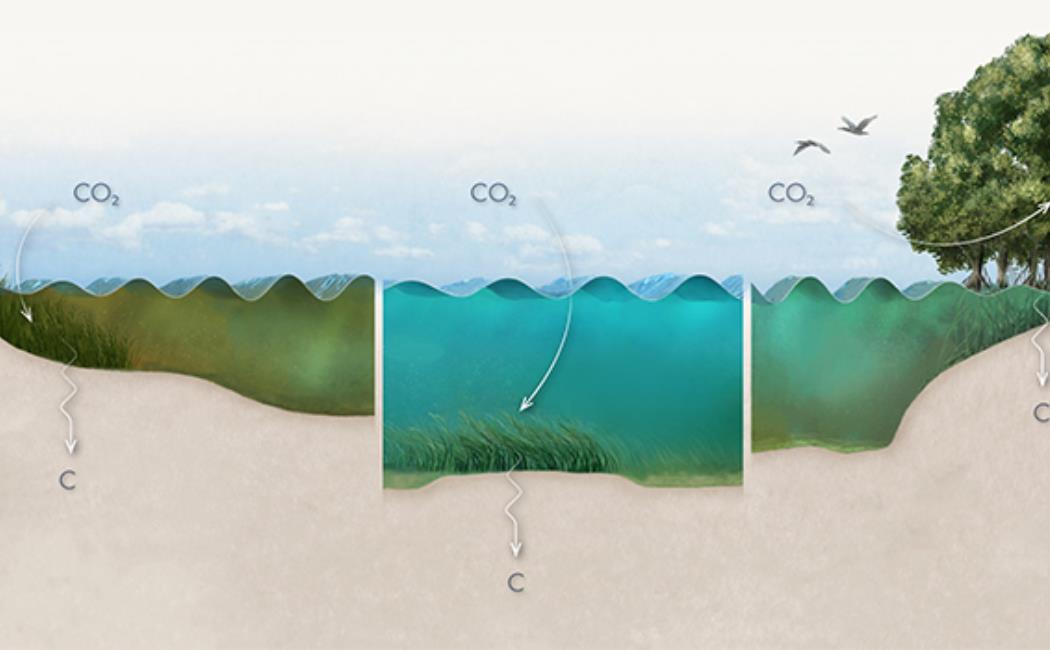
Kelp help: seeking options for blue carbon
06 January, 2021
“Conserving the world's oceans and coastal ecosystems is a no-regrets strategy posing huge benefits for people and planet,” explains Carlos Duarte, KAUST’s leading marine ecologist. For three decades, Duarte has led research into “blue carbon” ecosystems that can help both mitigation and adaptation to climate change and that include coasts, sandy beaches, mangroves, kelp forests, salt marshes and seagrasses.
These ecosystems generate multiple benefits, both as carbon sinks and the other ecosystem services they provide such as habitats for fisheries and many marine species; regulators of coastal water quality; protectors from storms, floods and sea-level rise; and sources of food and employment opportunities from transport to tourism.
Click here to read the full story
Image: Blue carbon ecosystems, such as mangroves, saltmarshes, kelp forests and seagrass meadows, act as carbon sinks by removing carbon from the atmosphere and storing it below ground in their sediments.
© 2021 KAUST; Xavier Pita